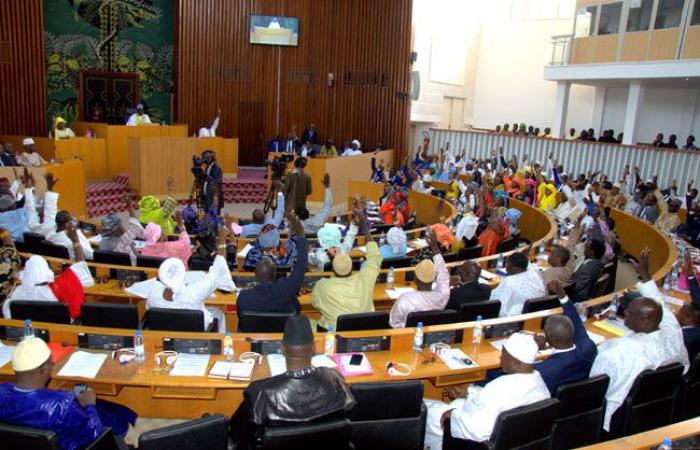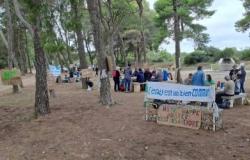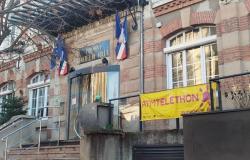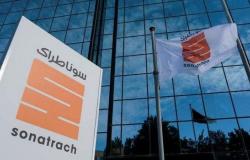The next Senegalese legislature, the 15th of its kind, promises to be full of challenges and political negotiations. While the new government is still struggling to establish its reforms, the National Assembly is preparing to play a central role. After a landslide victory for the young Pastef party, many questions remain about the key figures who will lead the hemicycle and the parliamentary groups. Strategies, speculations and future appointments are already taking center stage.
The majority of elected officials in this new legislature are new to parliamentary matters. For Pastef, this victory represents both a consecration and a colossal challenge. The party won an unprecedented majority, but it will now have to transform this electoral success into concrete and credible actions within the National Assembly.
Before the official installation scheduled for early December 2024, if no appeal is filed, internal negotiations are in full swing to structure the future parliamentary groups.
The question of leadership within Pastef
Within Pastef, the subject of the future president of the National Assembly remains taboo. Senior party officials carefully avoid any public statements, preferring to resolve these issues internally. However, three names come back insistently: Ayib Daffé, Amadou Ba and Ousmane Sonko.
Former president of the Pastef parliamentary group, Ayib Daffé is a respected figure within the party. Close to Ousmane Sonko, he demonstrated loyalty and tenacity, particularly during periods of turbulence. Several voices are calling for him to become the next president of the National Assembly. Some see it as a way to avoid a duality at the top between Ousmane Sonko, head of government, and the President of the Assembly. Daffé himself remains discreet, calling for caution: ”This question must be resolved internally,” he emphasizes, rejecting premature debates.
For observers, proposing Sonko for the presidency of the National Assembly is a divisive idea. His supporters see it as a way of asserting his leadership. But this option presents risks of concentration of power and could create unnecessary friction. In addition, Sonko seems more destined to consolidate his role at the head of government.
Another name mentioned is that of Amadou Ba, known for his eloquence and his mastery of parliamentary questions. Originally from Thiès, he replaced Birame Souleye Diop after the latter’s resignation for multiple functions. Respected for his incisive words and his discipline, the former representative of Diomaye represents a credible alternative. His supporters say he could provide needed stability in the face of an opposition determined to test the new regime.
The opposition in search of coherence
The defeat of the opposition intercoalition has left profound consequences. Some leaders have been singled out for their lack of preparation and legitimacy. Only the Takku Wallu coalition seems capable of forming a solid parliamentary group.
However, internal divisions persist, notably between Jàmm ak Ñariñ and Sàmm sa Kaddu, two coalitions which are struggling to overcome the resentment of the electoral defeat.
Furthermore, in internal negotiations within the opposition, one question deeply divides activists: the legitimacy of leaders who have lost their political base. For many, leading a parliamentary group requires not only skills, but also a solid local presence. This position is particularly visible within Takku Wallu Senegal where debates rage over the designation of future parliamentary leaders.
Among the expected figures, Amadou Dawa Diallo appears to be an essential candidate. President of the Ranérou-Ferlo Departmental Council, he managed to maintain his stronghold during the last legislative elections, winning a large success against Pastef. With nearly 8,289 votes against 5,550 for the ruling party, its victory demonstrates a solid electoral base and an ability to unite locally.
Unlike certain opposition leaders who struggle to justify their position due to electoral defeats, Amadou Dawa Diallo stands out as a symbol of resistance in the face of Pastef’s raid. His supporters highlight this performance to legitimize his parliamentary ambitions, believing that the presidency of the group must go to those who have managed to maintain the confidence of voters.
However, two names dominate discussions within the opposition: Abdou Mbow and Aïssata Tall Sall.
Member of Parliament for 12 years, former vice-president of the Assembly and ex-president of the Benno Bokk Yaakaar parliamentary group, Abdou Mbow is a natural candidate. His in-depth knowledge of parliamentary workings and his tenacity make him a formidable adversary. However, his lack of political base could limit his chances of leading a group rebuilding after the debacle of November 17, 2024.
Lawyer and former minister, Aïssata Tall Sall embodies a dynamic opposition. Known for her strength of proposal and her charisma, she has a certain legitimacy. However, his back and forth between the government and Parliament raises questions. Some believe she lacks consistency, while others see her as the best chance to revitalize the opposition.
Independent lists and coalitions: potential or non-aligned allies
In the configuration of the next legislature, the National Assembly will see the emergence of potentially new parliamentary groups. The central question remains that of strategic alliances, rallies or the neutrality of certain parties. If the majority is undoubtedly dominated by Pastef, the other coalitions and independent lists will play a key role in the balance of political forces.
Among the most prominent formations, several could join the opposition or choose a middle position. These choices will be decisive for the dynamics of the 15th legislature. The different coalitions will not only have to define their political positioning, but also establish clear strategies to maximize their parliamentary influence. The Dieul Lignou Mom list, represented by Tahirou Sarr, occupies a special place.
Although Sarr has had differences with Pastef in the past, his ideological proximity to Ousmane Sonko remains evident. His nationalist and sovereignist discourse finds an echo in Pastef’s political orientations, thus placing him in an ambivalent position. If he joins the majority, it won’t be a surprise. It is almost impossible to see him joining the opposition camp, notably Takku Wallu Senegal, according to several observers. However, he can choose to be a non-aligned.
A more plausible scenario for Thierno Alassane Sall of the Senegaal Kese coalition. He can continue in his non-registered logic. The former minister is known for his fierce independence and his ambition to distance himself from traditional blocs. Such a position would allow it to influence specific debates without engaging in a logic of systematic opposition.
A posture which is not the case of Birima Mangara, at the head of the 3rd voice alternative pole. A former minister, he enjoys a reputation for pragmatism. His coalition could opt for an independent line, while occasionally collaborating with the opposition on issues of national interest.
And Koluté Nguir Senegal (AKS) with Abdou Karim Sall also seems closer to the opposition, because he comes from the flanks of BBY. Moustapha Diop of the Farlu coalition could also follow a similar trajectory.
However, Maguette Sène and Adama Diallo, representatives of the Andu Nawlé coalition and the March of Territories, have a strong local electoral base. Their strategy could aim to defend territorial interests, which places them in a flexible alliance dynamic. Their joining the opposition is not excluded, but their priority will remain the defense of regional issues. As well as And Bessal Senegal by Abdoulaye Sylla.
The 15th legislature therefore promises to be a decisive turning point. For Pastef, it will be a question of proving his ability to govern and unite, after years spent in opposition. The choice of the President of the National Assembly and the heads of parliamentary groups will be decisive.
The opposition, for its part, must overcome its divisions to offer a credible alternative.
In this tense context, Senegal is preparing to experience a new political phase where each decision, each appointment will have major repercussions on the future of the country.






